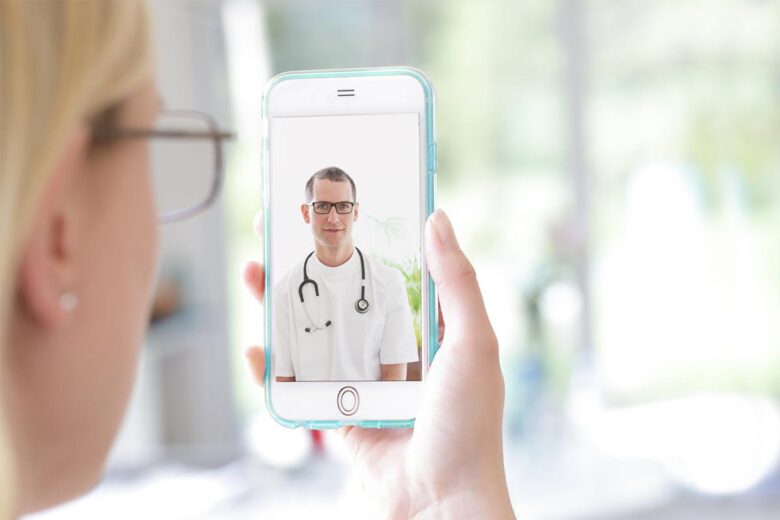In this digital era, it’s impossible to find a sphere of life that’s not touched by technology. Many industries are adopting technology to serve their customers better, and the healthcare industry isn’t far behind. Although there have been doubts about the effectiveness of technology in psychotherapy as it’s a one-to-one treatment system, the issues are now resolved. Many mental healthcare service providers use technology to serve their patients, and the outcomes have been fantastic.
Below, we have listed seven different ways technology has positively impacted psychotherapy. Let’s take a look.
Contents
1. Telehealth

Source: healthcity.bmc.org
Telehealth has been one of the most beneficial advances in psychotherapy. We’ve seen it in full effect during the COVID pandemic. Millions of people have benefited from telehealth services as they were locked up in their houses and couldn’t travel. Even after the pandemic, many people choose telehealth services for their therapy sessions for various reasons.
“As national research has shown, telehealth psychotherapy and teletherapy offer effective emotional and psychological care for you or a loved one as an alternative to in-person treatment.” says a representative of Living Well Psychotherapy, a telehealth psychotherapy IL specialist.
Telehealth is a safe option for patients receiving treatment. The healthcare facility offering this service usually sets up safe and secure phone connections for the therapy sessions and comes with flexible timings. This helps patients save a lot of time in commuting and standing in queues.
2. Virtual Reality Therapy
You must be wondering how virtual reality can help in psychotherapy. We’ve only seen VR technology used in the entertainment industry, but it’s also helping the mental healthcare industry serve patients better.
Even though the concept of VR therapy seems similar to teletherapy, they are executed differently. The patient is placed in a 3D reality with a specific environment, and the therapy is given through a headset or a computer game. The games and virtual reality environments are designed to keep the patient’s mental health condition in mind. They practice inside the environment to improve their condition.
A completely immersive virtual reality therapy can help patients overcome past trauma and phobias. They can also avail therapy sessions with a therapist in the guise of an avatar within the 3D environment.
3. Mobile Apps

Source: hbf.com.au
Apps have become a part and parcel of our lives. Name any activity in our daily schedule, and you can find an app for it. The recent technological development in the mental health sector has created many mobile applications that can help patients in various ways. Some of these apps use real-time chats with therapists, some use chatbots to identify initial distress, and some keep track of mood fluctuations or anxiety attacks.
Almost all these apps come with a data tracker that collects the patient’s information over a certain period and provides a basic analysis. This can alert the users. They can also share it with their therapists for better insight.
4. Wearable Technology
Wearable technology has helped shift the mental health industry positively in recent years. Smartwatches and fitness trackers are a great way to keep track of your physical activity, heart rate, level of sleep, and much more. All of these are indicators of stress or mental health conditions, and patients can benefit from it when they track this data through their wearables.
Wearables can also detect symptoms of depression and anxiety by monitoring heartbeat rate. These can also detect anxiety attacks by monitoring your heartbeat rate and breathing. Interactive wearables, such as Apollo, help to calm your nerves through touch therapy.
5. AI-assisted Therapy
The use of AI in recent years has truly taken off. They are not only being used for home systems, entertainment, and personal assistance but also are helping out in the healthcare industry, specifically psychotherapy.
Many new programs and applications like Wysa have built-in CBT or cognitive behavioral therapy practices. Patients can practice them to understand their condition and help control them.
Smartphones also come with these chatbots and voice recognition systems. Many programs and apps, such as Ellipsis, recognize voice patterns in patients to discern their mood type or level of distress. This makes getting help much easier when the patient is struggling.
With new advancements every day, we can expect to receive more AI-assisted psychotherapy programs that help both patients and therapists.
6. Personalized Treatment
 Algorithms and data analysis have allowed the mental healthcare industry to process patient history and session data much more easily and quickly.
Algorithms and data analysis have allowed the mental healthcare industry to process patient history and session data much more easily and quickly.
Technology also allows patients to record and track their changes in mental health and symptoms. When a patient visits a therapist, they usually have to fill out a questionnaire with their latest mental health information, including new symptoms. The facility then manually records and processes that data.
Technology allows patients to record the data in real-time and save it on the cloud. The information then becomes much easier to access and process with the help of AI and data analytics tools. This saves time for both the patient and the mental healthcare service provider.
It also becomes easier for the healthcare services to provide quick personalized treatment to each patient as it takes a significantly low amount of time to process the new data.
7. Online Support Groups
Mental health patients need a lot of support and assurance, as they might be going through something that most others don’t understand. Being around people who are battling the same and taking psychotherapy can be a source of comfort and information for them. The latest technological advancement has made communication much easier, and many online support groups have popped up to create small communities of mental health patients from around the world. These platforms have voice messaging, text messages, and video calling features. Group members can hold online meetings and chit-chat sessions and connect to like-minded people from the comfort of their homes.
There are online platforms and apps for group therapy as well. These platforms can also be area-specific. Some also offer quick counseling. You can choose to join these groups based on your condition. Some help with sobriety, some provide cognitive behavioral therapy, and some support people who have gone through divorce.
Using technology has greatly affected the mental health care sector. Both the patients and therapists are benefiting from it. Services such as telehealth treatment are more widespread than some others, and patients are already finding it useful. The use of apps and wearables is also on the rise. These are helping patients track their condition and aiding the therapists with additional information.
With the widespread use of data analytics, identifying mental health conditions from patient surveys will become much easier and faster, and therapists can administer treatment much more quickly. AI is also becoming more advanced, and we can expect to find more AI-assisted mental health treatment options soon.
